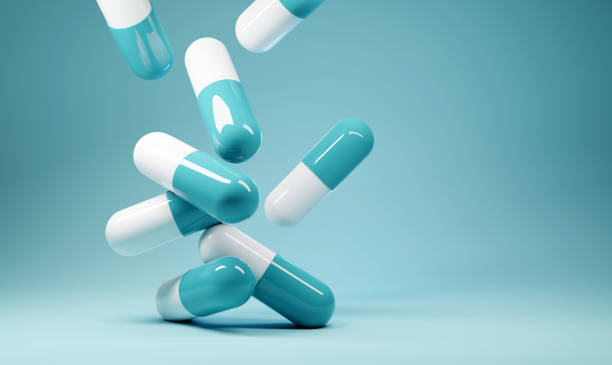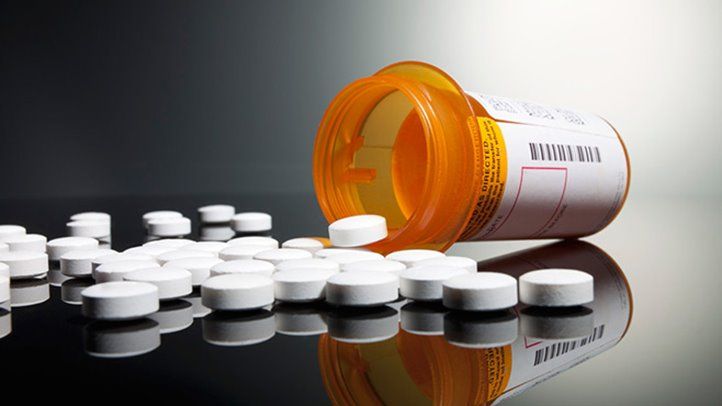Prime
We must shun self-medication

What you need to know:
Individuals have been so much addicted to self-medication that they find nothing bizarre in selecting medicine of their own choice without knowing its consequences and accurate implications whatsoever
The term self-medicating refers to any attempts to deal with depression, pain (physical or emotional), or intense emotions with the help of drugs (prescription or otherwise), alcohol, and other substances, and without the guidance of a qualified medical doctor. You don’t have to be diagnosed with a medical condition first to self-medicate.
It is true that the human body witnesses several dilemmas and complications due to various infections, ailments and syndromes that occur time to time on account of various reasons including exorbitant stress, psychological trauma, work-life pressure, frequent usage of unhygienic eatables and inherited disorders. In order to get rid of such diseases, medication is essential and this leaves everyone at choice of whether to become a habitual slave of self-medicating or to consult a general physician about the process of treatment in lieu of doctor’s prescription.
Self-Medication is not a new phenomenon in society. It exists in all localities around the globe most prominently among the Asian and African countries. Individuals have been so much addicted to self-medication that they find nothing bizarre in selecting medicine of their own choice without knowing its consequences and accurate implications whatsoever. Over time, the selection of medicines gets easier as people get so confident along the way.
What is important to such people is their internal satisfaction, quick access to relief from pain and a narrow escape from the doctor’s fees or healthcare cost which is considered by many as extravagant. Self-medicating brings along a huge relief on the burden of medical service delivery e.g. lowers prescribed drug costs associated with publicly funded health programs and calms the pressure where health care services are not available, insufficient or even in cases of basic amenities where human capital is inadequate. The practice also Increases awareness on health care and medication to the residents living in far-flung areas who are mostly uneducated and ill-informed.
A study by Moses Ocan and Freddie Bwanga on Patterns and Predictors of Self-Medication in Northern Uganda found that a high proportion (75.7 percent) of the respondents practiced antimicrobial self-medication with fever, headache, lack of appetite and body weakness being the disease symptoms most treated through self-medication (30.3 percent).The commonly self-medicated antimicrobials were coartem (27.3 percent), amoxicillin (21.7percent), metronidazole (12.3%), and cotrimoxazole (11.6%). Drug use among respondents was mainly initiated by self-prescription (46.5%) and drug shop attendants (57.6%). These findings alone from Northern Uganda as of 2014 suggest an even greater spread of the vice among people all over the country over the years.
It is an unquestionable fact that we all have feasted our eyes on the process of Self-medication at least once in a lifetime without having the knowledge of its dire concerns and repercussions that vary from disease to disease, an aspect of information best understood by the physician. The frequently used route of drug administration is oral for being most convenient and economic. Solid dose forms such as tablets and capsules are used.
Potential risks of self-medication practices include; Incorrect self-diagnosis, delays in seeking medical advice when needed, infrequent but severe adverse drug reactions, dangerous drug interactions, incorrect manner of administration, incorrect dosage, incorrect choice of therapy, masking of a severe disease and risking an even greater disease occurrence. Self-medication is not advisable because it can trigger other medical problems such as drug abuse and tolerance. You may assume that self-medication is good enough for you, and that you can avoid the doctor but heal pretty fast yet worsening the condition you are trying to self-treat. Incompatible medication by the patient’s own choice may result in treatment failures while making the ailment more complicated. Self-medicated patients are brought into the hospital, when the ailment has reached a terrible or an incurable mode. Due to self-medication, the incongruous occurrence of both under dosing and overdosing results in the deadly adversarial conditions, un unbearable costs on healthcare arise due to prolonged recovery, microbial drug resistance not to mention the uncountable side-effects of varying drug dosages and imbalances in the internal hormonal structure of the human body with end results being fatal to the individual and or community.
In today’s world people are highly accustomed to using medicines on their own initiatives. People need to be encouraged to cultivate a better health service seeking behavior while we advocate for affordable consultation fees. The government should take bold measures in restricting the selling of medicines to the public without any properly authorized prescription. On the other hand, it is a shared responsibility that is also inter-reliant on the family members to abstain from taking medicines of their own choice for it is quite costly in the long run in terms of finances and health.
It is, therefore, advisable to ensure that we only use a drug prescribed by a qualified doctor or at worst make the necessary consultations before using a given drug for the practice of self-medication is addictive and its initial results corrupt indeed.
Authored by Kenneth Talemwa, Medicine and surgery scholar




